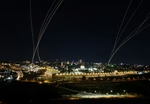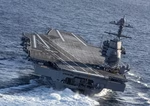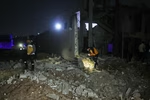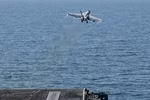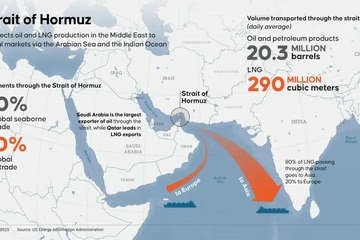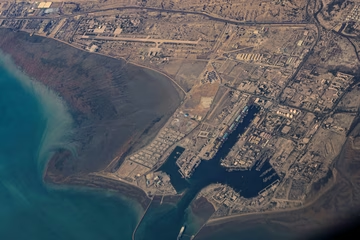
Republika Srpska (RS) entity's freshly formed gendarmery unit was lined up for the first time this Tuesday, at the Zaluzani police training centre near the RS administrative centre of Banja Luka, in the presence of entity Prime Minister Zeljka Cvijanovic, Bosnian Serb Leader and Presidency member Milorad Dodik, entity Interior Minister Dragan Lukac and RS Police director Darko Culum.
The line-up was part of the official presentation of the RS Interior Ministry's new organisational unit which is said to have been formed to protect the RS, its citizens and their property.
“We're doing this for the future of Republika Srpska. This is a great step forward in the strengthening of our Interior Ministry. I wish no one ever had to use force and arms, I wish we could build hospitals so we wouldn't have sick people, but unfortunately, the world is different,” RS Prime Minister Zeljka Cvijanovic said after receiving the first report from the gendarmery commander Dragoslav Banovic.
“We must work on the strengthening of our institutions and the capacity to be a safe, stable and secure RS, and in order to be such a republic, we must be stronger economically and financially, we must protect the political stability of our institutions and we must strengthen our general safety every day”, she noted.
Cvijanovic told the gendarmery that RS “politicians were always proud of them, from the time they waged war and defended the RS' freedom to this day.”
In late June 2019, authorities of Bosnia’s Serb-dominated entity of Republika Srpska called off their plan to form an auxiliary police unit of some 1,000 strong, as they previously announced, and instead said they would introduce a gendarmery, a force existing in Serbia under the same name.
The Bosnian Serb leader and Serb member of Presidency member Milorad Dodik said that the newly formed unit is highly versatile and can be used regardless of the challenges it faces.
“The gendarmery is an operational unit which can be used on various tasks and it is mobile, it's not stationary. We're developing modern police forces similar to those in the West. What's important to me is that I received positive messages from people throughout the RS for the way we organised this because it gives the people a sense of security, and that's important to us,” Dodik said.
Earlier this year, the RS authorities announced they would amend the Law on Police thus introducing the auxiliary police unit, which sparked reactions in the Federation, Bosnia’s Bosniak-Croat dominated entity, and a part of the international community.
Dodik added that he would continue to wait for the opportunity to form the auxiliary police unit, saying that it is not contrary to Bosnia's Constitution, but that finances are the limiting factor.
The Serb leader argued that the RS does not need Bosnia's state institutions and that “they were created only to hinder the RS, and not to be of any use to it.”
It did not take long for Bosniak representatives to react and condemn the formation of the new unit, saying it is potentially even more dangerous that the formation of an auxiliary unit.
RS Vice President, Ramiz Salkic coming from the strongest Bosniak party, the Democratic Action Party (SDA), said that there is no doubt that the new unit will serve to protect and implement certain political ideas and goals.
“A well trained and well-equipped unit, regardless of the fact that it has fewer police officers, can be a lot more dangerous if abused by the system or an interest group,” Salkic argued.
According to him, the unit's formation is evidence that “the entity never gave up on the formation of its armed forces, matching Bosnia's Armed Forces.”
“For this reason, I think that Cantonal and Federation entity's interior ministries should follow suite for the sake of maintaining balance,” Salkic noted.
Federation's Interior Minister Aljosa Campara said Tuesday in Sarajevo, that the RS gendarmery's line-up is an unsuccessful attempt to get out of an awkward situation with the failure to form an auxiliary unit in this entity.
He explained that the RS Interior Ministry did not expand its capacity, but formed a new unit out of the existing employees.
Campara argued that this was an attempt to appease the electorate after the failure to form the auxiliary police unit and that this does not change anything substantially, but can lead to a disruption of interpersonal relationships.
Kakvo je tvoje mišljenje o ovome?
Učestvuj u diskusiji ili pročitaj komentare





 Srbija
Srbija
 Hrvatska
Hrvatska
 Slovenija
Slovenija








